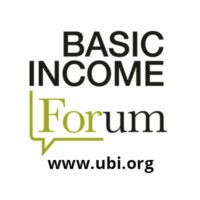Leading thinkers, politicians and policymakers come together to debate and explore basic income pilots, macro-economic models, the prospects for basic income in developing economies, and political economy of social and economic change.
Join us for ‘Back to Basics: Income for Everyone?’ – the third conference from the University of Bath Institute for Policy Research (IPR) and Bristol Ideas, supported by the Basic Income Forum.
In recent years, interest in basic income has grown around the world. Basic income is an unconditional income paid to every individual. It is a payment that is not means-tested or made conditional on work-status. Advocates of basic income argue that it represents a fair, simple and efficient way of supporting individuals, in contrast to the complexity and intrusiveness of existing welfare states. Many also argue that automation and the rise of precarious work makes a basic income necessary to replace or supplement wage labour.
The Covid-19 pandemic and cost of living crisis has thrown these issues into sharp relief, as governments around the world have scrambled to close gaps in social safety nets and prevent people falling into poverty. At the same time, treasuries and central banks have mobilised the full range of fiscal and monetary policies to prevent today’s crises tipping economies into deep recessions. State intervention in the economy has expanded, while ideological support for austerity has sharply receded. Arguments about whether a basic income is affordable are being made in a dramatically changed intellectual and political context.
Experiments with basic income schemes or pilots have multiplied in towns, cities and countries across the globe. Coalitions of city and state leaders supporting basic income have sprung up, and many more political parties, in the UK and elsewhere, now include commitments to basic income in their manifestos. In contrast, supporters of increased investment in existing welfare states and universal public services argue that basic income is an expensive distraction that delivers little bang for the buck. Prospects for a fully-fledged basic income, covering whole populations, still appear remote.
At this conference, leading thinkers, politicians and policymakers will come together to debate and explore these issues and more.
Watch the recording of the conference
The programme
10:00 – 10:10 Welcome
Nick Pearce introduces the day, the themes to be covered and the speakers.
10:10 – 11:10 What Are the Lessons From Basic Income Pilots?
With Angela Dorgan, Bru Laín, Jonathan Rhys Williams and Lena Swedlow. Chaired by Andrew Kelly.
11:15 – 11:45 Break
11:45 – 12:00 Introduction to Macro Models
With Geoff Crocker.
12:00 – 13:00 What Is the Impact of Basic Income to the Economy?
With Joe Chrisp and Chris Thoung. Chaired by Naomi Miller.
13:00 – 14:00 Break
14:00 – 14:05 Update from Andrew Kelly
14:05 – 15:05 Is Basic Income the Key to Solving Global Inequality?
With Beti Baraki, Ugo Gentilini and Neil Howard. Chaired by James Copestake.
15:05 – 15:30 Break
15:30 – 16:30 Can Basic Income Work?
With Louise Haagh, Gaby Hinsliff, Harry Pitts and Martin Sandbu. Chaired by Neal Lawson.
16:30 – 16:45 Closing remarks from Nick Pearce
Watch previous conferences
Speakers
Beti Baraki is a consultant at the New Economics Foundation. She specialises in qualitative research. Her work relates to inclusive local economic development, happiness and wellbeing economics, policy development around women’s economic wellbeing, health inequalities, intersecting inequalities, homelessness, tech abuse and digital control and VAWG (violence against women and girls). She is also helping to develop work around the Green New Deal.
James Copestake is currently Director of Studies for the Institute for Policy Research (IPR) Professional Doctorate in Policy Research and Practice (DPRP), a co-director of the Centre for Development Studies, and a founding director of Bath Social and Development Research Ltd, a social enterprise set up in 2016 to promote better qualitative and multi-method impact evaluation.
Joe Chrisp is a Research Associate in the Institute for Policy Research (IPR) at the University of Bath. His research covers political economy, comparative politics, labour markets, welfare states and basic income.
Geoff Crocker edits the website The Case for Basic Income and is the author of Basic Income and Sovereign Money – the alternative to economic crisis and austerity policy (Palgrave 2020).
Angela Dorgan is Chair of the National Campaign for the Arts, who lobby government for increased support, funding and recognition of artists, arts workers and arts organisations in Ireland. She is also the CEO of First Music Contact (FMC), the Arts Council funded national resource organisation for musicians which run the Irish Music Export Office, the online music portal Breaking Tunes and the annual music industry showcase Hard Working Class Heroes festival.
Ugo Gentilini is Global Lead for Social Assistance with the Social Protection and Jobs Global Practice at the World Bank. His interests encompass research and practice on social protection from high-income countries to fragile states. His recent books include Exploring Universal Basic Income (2020), Adaptive Social Protection (2020) and The 1.5 Billion People Question (2017). He blogs at ugogentilini.net
Louise Haagh is a professor in the Department of Politics, University of York. She researches and writes about problems relating to the democratisation of human development, economic justice, modalities of institutional change, and social transformation. She is also known for her advocacy for a broader humanist, democratic defence of basic income that sets this reform in the context of a human development perspective on freedom and the problem of democratisation of the public sphere.
Gaby Hinsliff is a Guardian columnist, political columnist and interviewer for Grazia magazine, writer, blogger and former political editor of The Observer. For over 12 years she covered politics for The Daily Mail and then for The Observer, developing an astute inside track on the exercise of power and the development of policy.
Neil Howard is a lecturer in the Department of Social and Policy Sciences and Principal Investigator and Co-Director of the WorkFREE project, University of Bath. His research has for many years focused on the governance of exploitative and so-called ‘unfree’ labour and in particular the types targeted for eradication by the Sustainable Development Goals. He founded and is one of the editors of the Beyond Trafficking and Slavery project on openDemocracy, which aims to put radical and grassroots commentary on ‘unfree’ or exploitative work and movement into the public domain. He is an Executive Committee member of the Basic Income Earth Network.
Andrew Kelly is Creative Programmer at Bristol Ideas and Affiliated Research Fellow in the Bennett Institute for Public Policy, University of Cambridge.
Bru Laín is Adviser to the Office of the Pilot Project for the Implementation of an Universal Basic Income in Catalonia. He is a member of the Basic Income Earth Network (BIEN) and the Secretary of the Spanish Basic Income Network (RRB).
Neal Lawson is a British political commentator and organiser. He is Director of Compass, and has been helping to lead the think tank since its formation in 2003. He is more focused than ever on how to make big transformative change happen, and focuses on their strategy, relationships and funding.
Naomi Miller is Acting Director of Bristol Ideas.
Nick Pearce is Professor of Public Policy and Director of the Institute for Policy Research (IPR) at the University of Bath. He has extensive experience in policy research and government policymaking and writes on a wide range of issues, from contemporary British politics, public service and welfare state reform, to Britain’s place in the world. His recent publications include Britain Beyond Brexit and Shadows of Empire: The Anglosphere in British Politics. He is currently Subject Editor of Science, Society and Policy, Royal Society Open Science, published by The Royal Society.
Harry Pitts is an academic writing, researching and teaching about the politics of fairer work futures. He is a senior lecturer in the Work, Employment, Organisation and Public Policy group at the University of Bristol Business School, and Co-Investigator of the £10 million Economic and Social Research Council Centre for Sociodigital Futures. He is Principal Investigator of the Research England/Office for Students project ‘Politics and Perceptions of Automation Risk’. With Andrew Pakes of the trade union Prospect, he is leading a Foundation for European Progressive Studies programme on the Labour Party and the future of work. He is a Fellow of the Institute for the Future of Work, an Associate Fellow of the Economic and Social Research Council Digital Futures at Work Research Centre and a Steward of the British Universities Industrial Relations Association. He is the author of five books and co-edits the Bristol University Press online magazine Futures of Work.
Martin Sandbu is the Financial Times‘ European Economics Commentator. He also writes Free Lunch, the FT‘s weekly newsletter on the global economic policy debate. He has been writing for the FT since 2009, when he joined the paper as Economics Leader Writer. He is the author of The Economics of Belonging.
Lena Swedlow joined Compass in November 2021 as Campaigns and Projects Officer. She is currently working on Compass’s campaigns for Basic Income Conversation, Progressive Alliance, and Only Stand to Win.
Chris Thoung is an economist and public policy researcher interested in evidence for policymaking. He is Associate Director of Cambridge Econometrics, overseeing the company’s work on social policy issues including jobs, skills, demography, health and inequality.
Jonathan Williams is a solicitor at Watkins and Gunn and Co-Founder of UBI Lab Cymru | Wales, a citizen-led group exploring and advocating for Universal Basic Income.
Booking Information
This is an online event on Crowdcast. Please note that Crowdcast works best in Chrome.
Booking a ticket for our Crowdcast event
Click the Book Ticket link to go to Crowdcast to register. Click the ‘Save my spot’ button to register. You will be prompted to enter your email address or social media login (Facebook, Twitter or Google). An email will be sent to confirm your registration, along with the option to add the event to your calendar.
Joining our Crowdcast event
Once you register you will have instant access to the event’s Crowdcast page, including the polls, chat, and Q&A. To return to the event page at any time, simply click the link in your confirmation or reminder email. The event will start automatically on its event page at the time advertised, and all you have to do is sit back and relax. You can download this guide from Crowdcast for more information.
Please note that Crowdcast is a third-party service that is not owned or managed by Bristol Ideas. Please review Crowdcast’s Privacy Policy as we do not accept any responsibility or liability for the policies. You can read Bristol Ideas’ Privacy policy here.
Accessibility Information
Live captions
You can use Chrome’s accessibility settings to view live captions for Crowdcast events. This page explains how to enable them.

